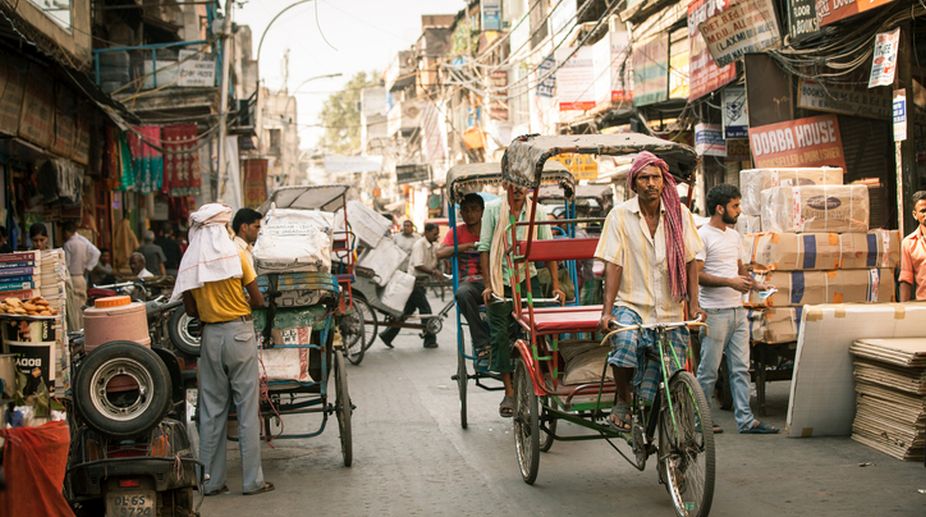Delhi HC refuses urgent hearing on PIL by retired judge against cash-based schemes by political parties
The Delhi High Court on Monday declined to grant an urgent hearing on a Public Interest Litigation (PIL) filed by a retired judge.

Representational image (Photo: Getty Images)
A cycle-rickshaw may appear less offensive than the hand-drawn rickshaws that still ply in some urban centres, but there is a stigma attached to both ~ they feature one person toiling to, literally, give others a ride. Now a proposal has been made by a committee set up by the Delhi High Court to replace all cycle-rickshaws with the increasingly popular electronic/electric ones that have been plying for the last few years.
There is no accurate estimate of the number of either variety, both run into over 100,000, but the common perception is that the e-ricks are driving cycle-rickshaws out of business in built-up areas. The Capital is seldom deemed a trend-setter, at least not in terms of traffic and transportation ~ the Metro may have been a “first” but Mumbai, Kolkata and Chennai boasted urban commuter rail services even when they were known as Bombay, Calcutta and Madras ~ but now it could be breaking new ground.
Advertisement
The expert committee has recommended a new class of two-seater e-ricks to provide that critical “last-missile connectivity” to spots where buses/trains cannot reach. For years cycle-rickshaws had provided that service, but from a “humane” angle they were not really acceptable ~ e-ricks designed as two-seaters could be a welcome substitute. The present “generation” of e-ricks seat four persons, and generally operate on a point-topoint basis. While economical, they do not take people to their doorsteps ~ as desired by the elderly, women and children.
Advertisement
Hence the proposal seems very welcome. A number of issues will need to be sorted out before the “dream” comes true. For starters the transport ministry will have to approve the vehicles, then manufacturers will have to switch or expand their product-range. Regulating rickshaws has always been problematic in the city, and a comprehensive regime will have to be evolved to govern the fare-structure (metered or otherwise) and drivers will have to be licensed ~ at present there is no regulation.
Care will also have to be taken when issuing permits, the “mafias” that virtually monopolised the cycle-rickshaw “trade” (with obvious police connivance) must not be permitted to establish a stranglehold over the e-ricks. Yet apart from the “human stigma”, the e-ricks have the advantages of being non-polluting (which is critical given prevailing conditions in the city), generally silent, and since they travel quickly do not slow-down the traffic.
Unfortunately with the local and Central governments unable to get an act together, it may require the judiciary to step in and apply the pressure required for the committee’s recommendation to be translated into reality. Yet at a point in time when Delhi is being slammed as the most polluted city in the world, the proposal for two-seater e-ricks is certainly worth following up. The common folk would appreciate them, and care little which “government” brought them on to the roads.
Advertisement